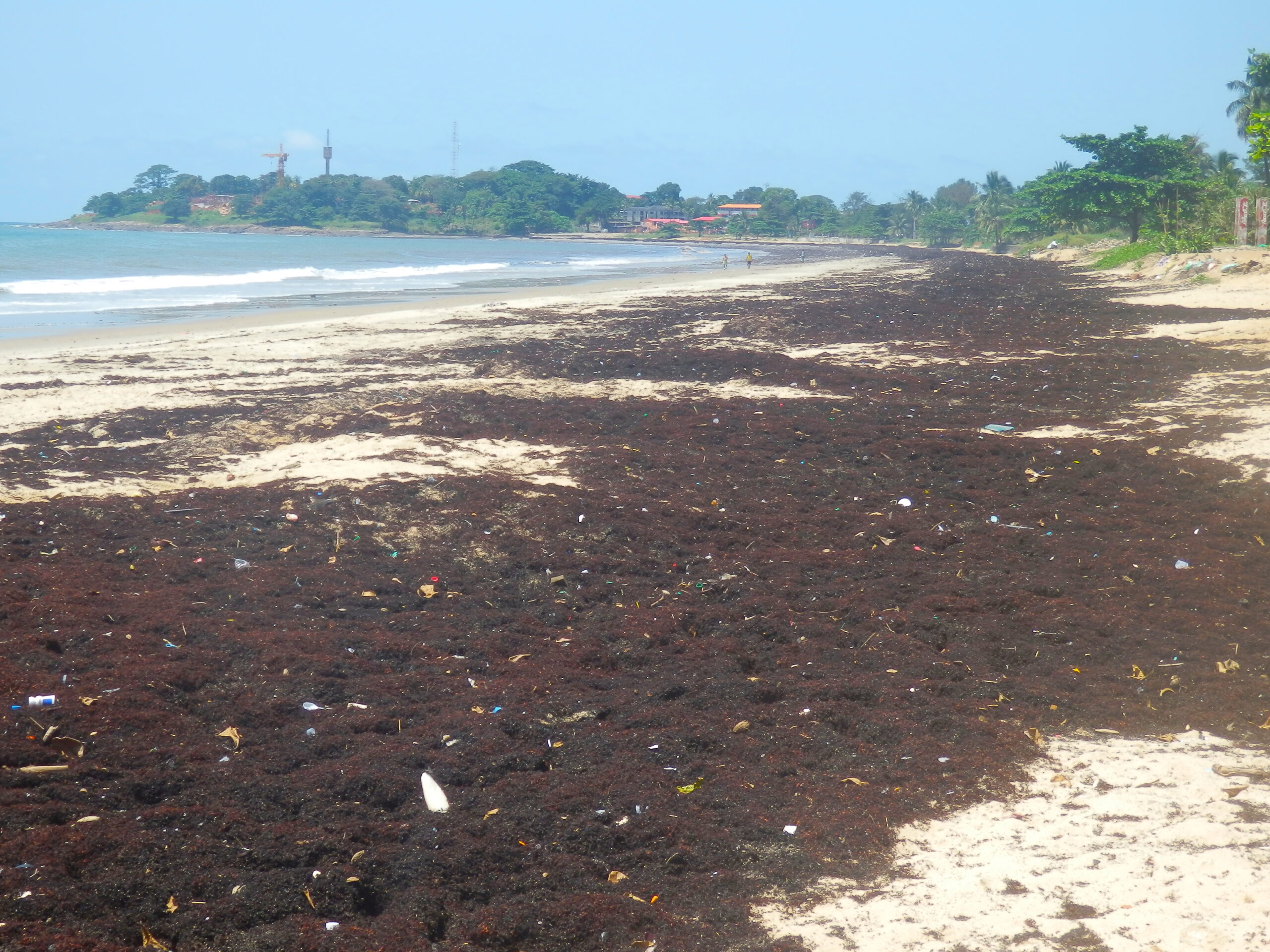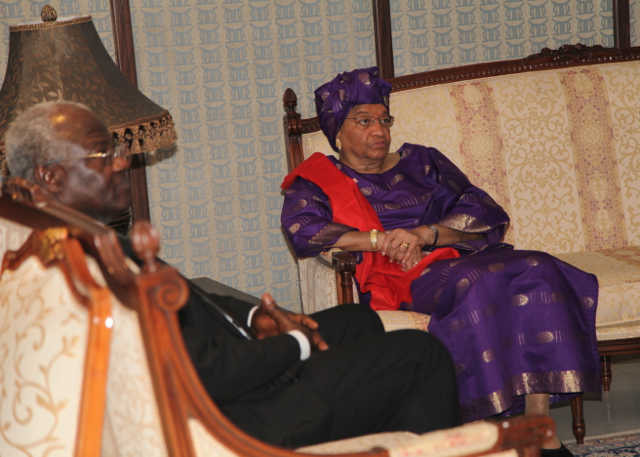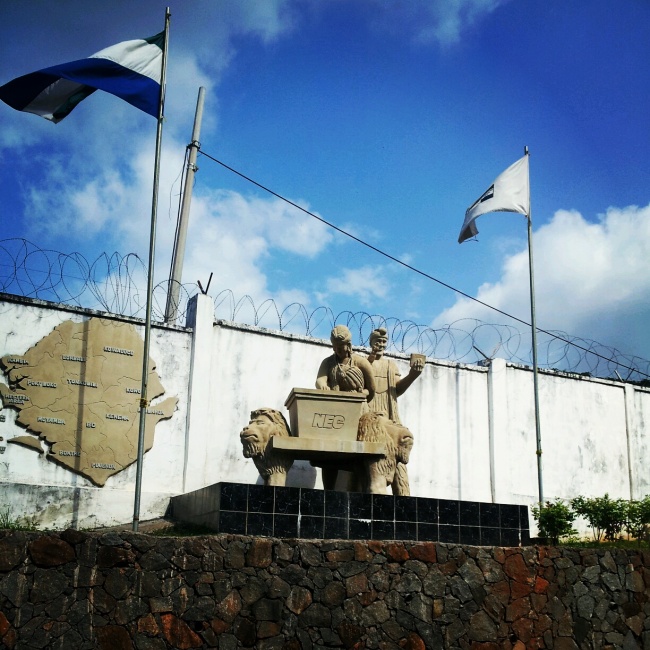This is what EPA says is the cause of the seaweed on Sierra Leone’s beaches

Massive piles of seaweed have returned to cover Lumley Beach and other beaches along Sierra Leone’s peninsular, obscuring the beach’s white sand, and spoiling beachgoers’ fun. When the seaweed first appeared in 2011, it raised serious concerns that continue still.
Lumley Beach which attracts young people on weekends is presently covered with sea weed stoping them from having their usual weekend fun, and exercise on sand.
However, many remain undeterred as they use their bare hands to pick up rotting sea weed to clear a space for their Sunday football match.
“We do this every weekend, it stinks but we have no option rather than cleaning it to be able to play football,” said John Turay.
Turay is one of the young people who run from their homes in all parts of the City to the beach in order to join others to play and exercise. The Sunday running to the beach tradition has been so for decades.
Until now many believed the seaweed was being caused by off shore oil drilling, and mining activity.
However Mr. Foday Lamin who heads the Department Natural Resources Management at the Environmental Protection Agency (EPA) says the sea weed has affected other countries as well.
“This is natural according to our findings, this is not related to mining or exploration,” said Mr. Lamin.
He explained that research done in 2011 showed that the seaweed was coming on to the beaches because of unusually high nutrient on the shores of coastal waters. This he explained leads the weeds to bloom in high quantities. He also said climate change was partly to blame as ocean acidity levels change.
According to Mr Lamin , there are three types of sea weed Brown Algae – the Phaeophyta, Red Algae – the Rhodophyta and Green Algae – Chlorophyta. The sea weed on Sierra Leone’s beaches is blown algae
“Sierra Leone’s sea weed is not coming from our coastal area it comes from far off the Sargasso Sea, and this is also happening along the west Africa region and Caribbean Countries.” Lamin added.
A regional expatriate group meeting will be held in Sierra Leone in November with the support of the United Nation Environmental Programme (UNEP) to discuss adaptation plans in handling the seaweed.
“Experts will be meeting to discuss possible solutions and adaptation measure, it is apparent that we can stop the seaweed from coming but we can find alternatives,” Lamin said.
Mr Hoody, a Public Relations Officer of the National Tourist Board said the sea weed drives away tourists from the beaches.
He said it has affected them economically and so they have had to join in on the sea weed cleaning efforts.
“It is the responsibility of the Freetown City Council to clean the beaches within the capital but we are doing it because the scene is not good and we are responsible for touristic areas,” Mr. Hoody.
If the sea weed is here to stay, it will undoubtedly have an adverse affect on Sierra Leone’s tourism post ebola recovery, even though it may not keep local football enthusiasts away.
Reporting by Augustine Kargbo & Lamrana Amadu Bah
1 comment
Leave a reply
You must be logged in to post a comment.













The seaweed is valuable organic fertilizer or ingredient for compost. Its a business opportunity that can bring return of investment.